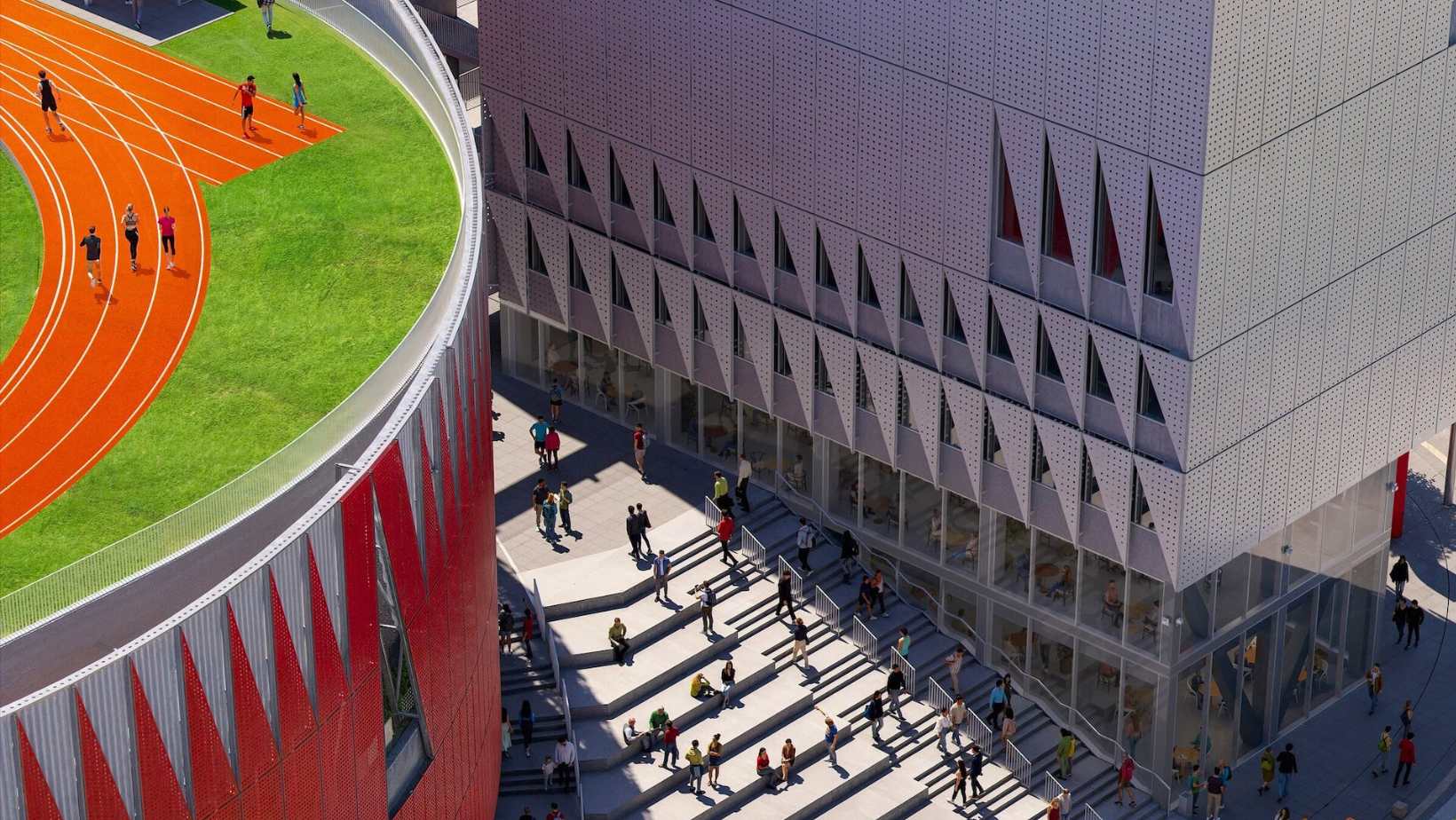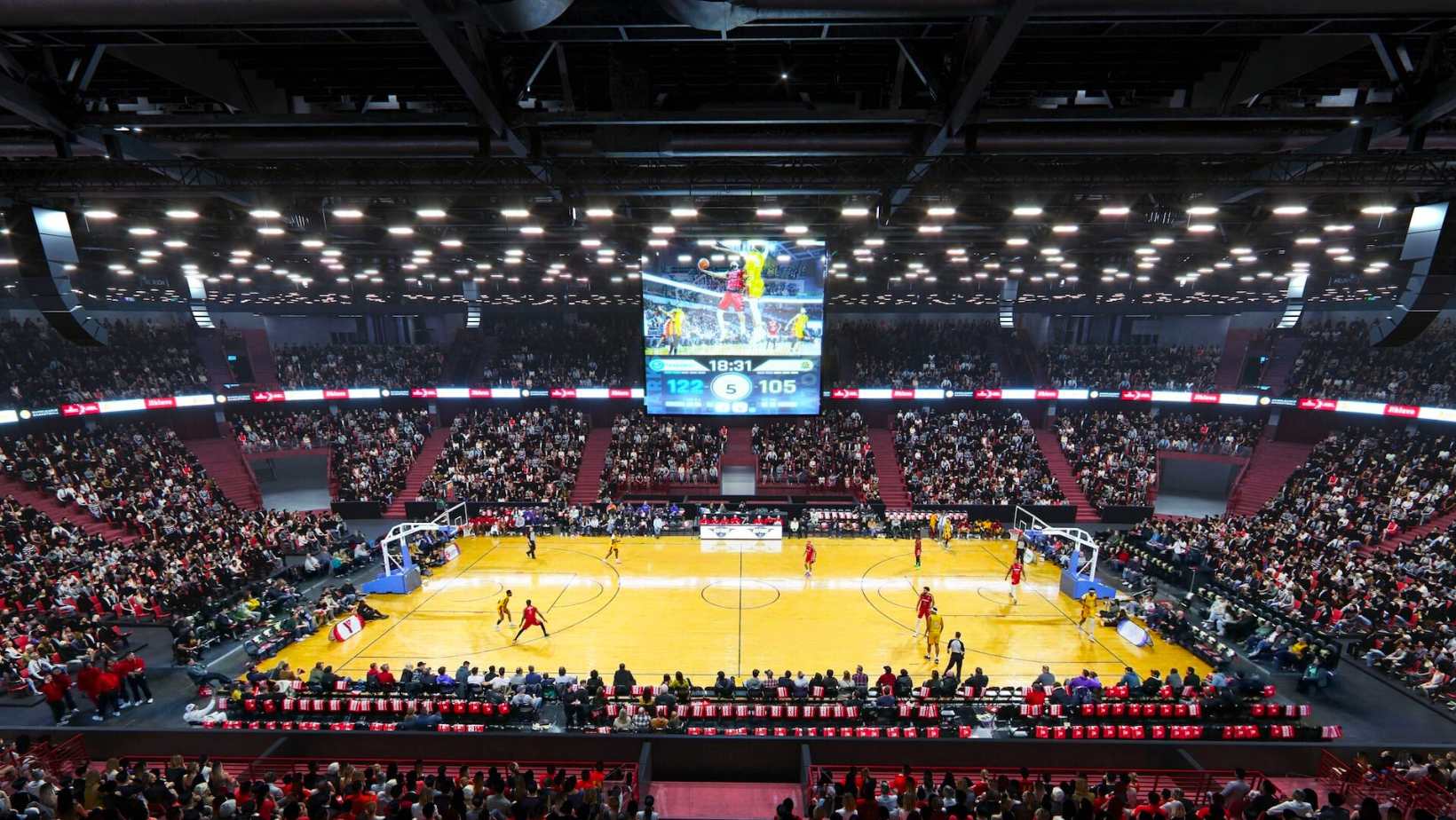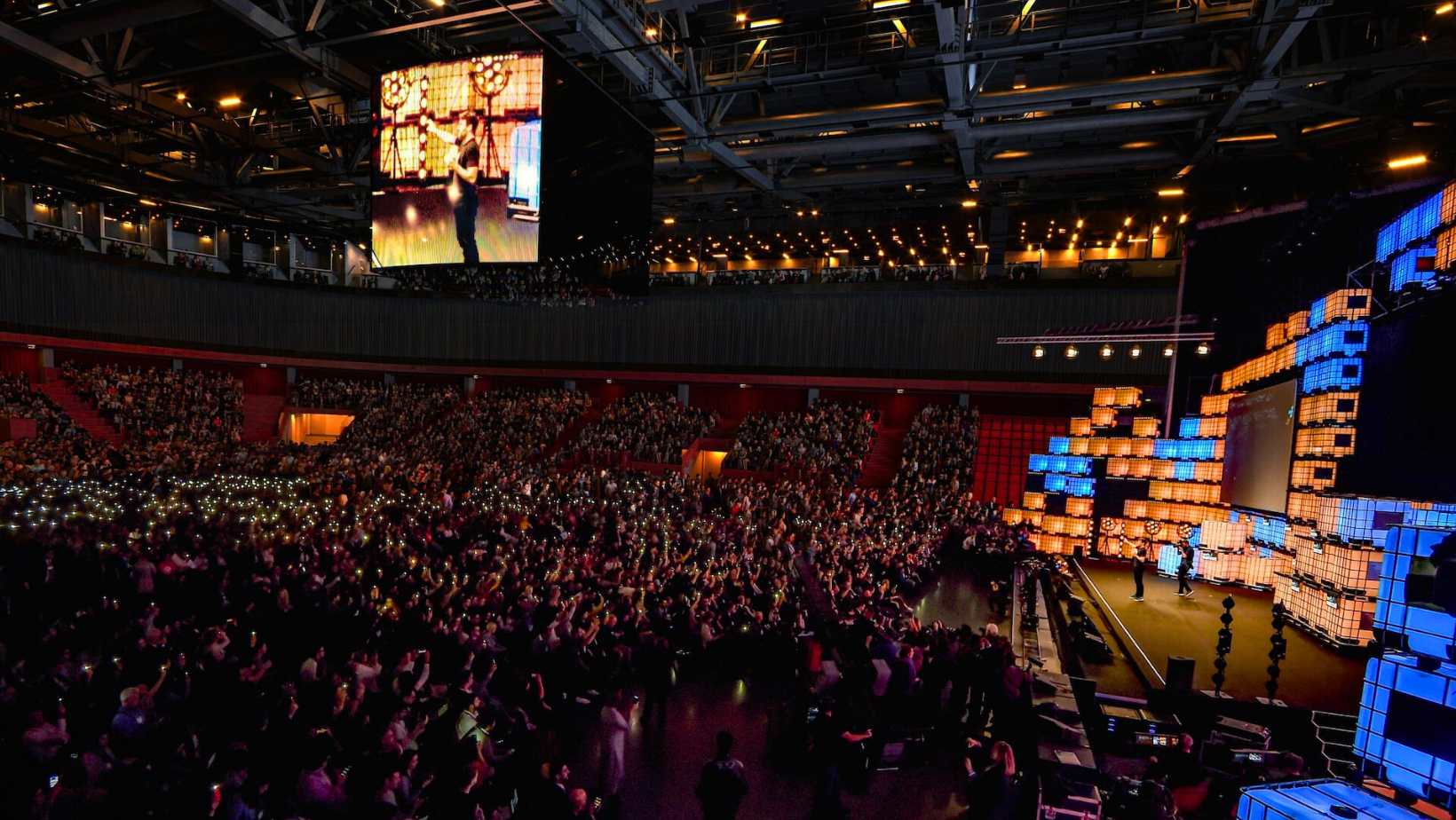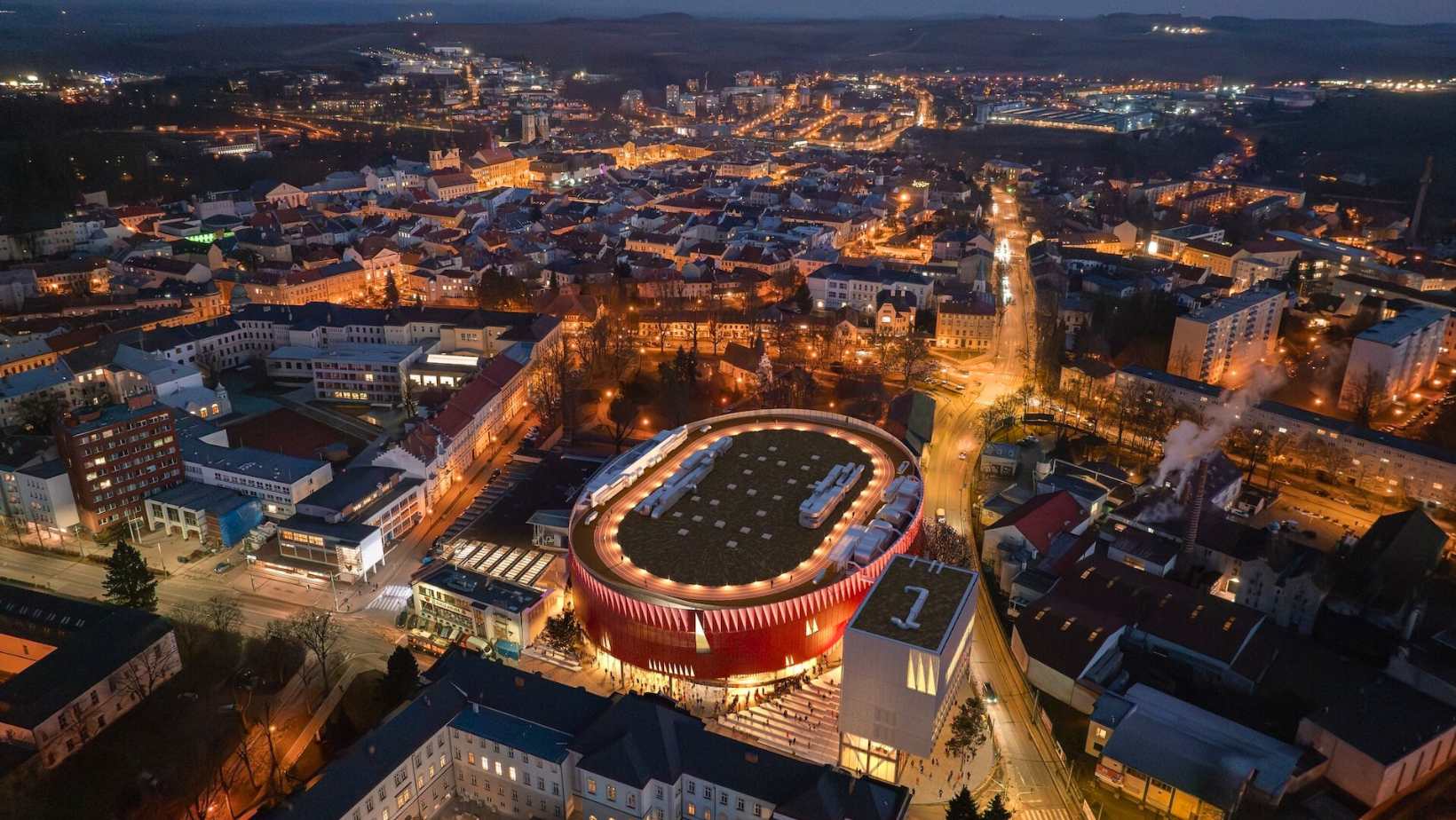Hosting a stage of the Tour de France in the Czech Republic is no longer just a dream discussed behind closed doors — it’s now a real possibility.
Prime Minister Petr Fiala confirmed on Tuesday that the country is open to negotiating the chance to host the race’s Grand Départ, the prestigious opening stage of the world’s most famous cycling event.
Speaking at the National Conference on the Promotion of Sport and Movement, Fiala said, “We’ve shown that we can organize tournaments at the highest level. There’s no reason to hesitate. I can confirm that the Czech Republic is prepared to negotiate the opportunity to host the Grand Départ of the Tour de France.”
While the idea has been informally floated for years, it gained new momentum after former footballer Petr Čech — whose agency Petr Čech Sport helps organize cycling events — publicly voiced his support.
This summer, Tour legends Bradley Wiggins and Andy Schleck will be racing in the Czech Republic during the L’Etape Czech Republic by Tour de France series, further highlighting the country’s growing ties to the iconic race.
Beyond cycling, Fiala expressed interest in co-hosting major football tournaments, such as the UEFA European Championship. “I believe we would make excellent co-organizers,” he said. “Our sports development strategies should move in this direction, even if it feels like a distant goal for now.”
For that ambition to become reality, however, Czechia will need to invest in larger stadiums. Plans are already underway: Sparta Prague aims to build a new 35,000-seat stadium in Strahov, expected to be completed within the next ten years. Meanwhile, Slavia Prague is planning to expand its existing stands.
Would you like us to write about your business? Find out more
Want to spend your Saturday doing something meaningful, active, and fun?
Join INEX on Saturday, May 17, for a special Volunteer Day at the Bohemia Farm Studio in Vysoká, Kokořínsko — one of the Czech Republic’s most scenic and culturally rich areas.
Organised by INEX – Association for Voluntary Activities, the event offers an ideal way to explore the Czech countryside while contributing to a local independent cultural project.
Bohemia Farm Studio, located in a picturesque rural setting near the Kokořínsko Protected Landscape Area, is a space for artists, creators, and the public to connect through art, education, and nature.
During the day, volunteers will support the venue with light renovation and maintenance work — including painting, sanding, and removing old plaster, both indoors and outside. No experience is necessary; just bring your energy and a willingness to help.
But it’s not just about manual work. Participants will also get a behind-the-scenes look at how an international independent cultural center functions, meet like-minded people, and enjoy the relaxed, creative environment.
The event is being held in partnership with a local professional photographer and teacher, who will be present to share insights and stories about the project and the area.
And yes — there might be a campfire in the evening. It’s not just a day of work; it’s a chance to unwind, socialize, and experience something different from the usual city weekend.
Would you like us to write about your business? Find out more
Condor has launched a new connection between Prague and Frankfurt, unlocking significantly cheaper flights to the United States and beyond.
For years, flying from Prague to New York typically cost around CZK 10,000, and that was considered a good deal. Occasionally, lucky travelers could grab discounted tickets for CZK 7,000—but only with inconvenient dates and limited availability.
That has now changed.
German airline Condor has introduced a new daily route from Prague to Frankfurt, creating a direct gateway to long-haul flights across the Atlantic. With this new option, travelers can book roundtrip tickets to New York starting at just CZK 7,000—a price that’s become much more accessible. The total journey takes just over 11 hours, including the transfer in Frankfurt.
By comparison, Delta Airlines, which offers a direct seasonal route between Prague and New York (May to October), charges around CZK 13,000.
More Than Just the U.S.: Caribbean, Africa, Asia
Condor began operating its Prague–Frankfurt route in early May. From Frankfurt, travelers gain access to destinations across North America, South America, Africa, and Asia, including the Maldives, Seychelles, Thailand, and South Africa. Panama City is also now reachable, making it a new starting point for exploring Latin America.
The connection to Frankfurt is served twice daily with an Airbus A320ceo, offering up to 180 seats per flight. Return fares between Prague and Frankfurt start at around CZK 3,500, significantly cheaper than Lufthansa’s average CZK 8,000 for the same route.
Condor: A Growing Airline With Global Reach
Condor, known for its distinctive green-and-white striped planes, has been flying since 1956 and now serves approximately 70 global destinations. The airline provides economy and business class on shorter routes, and offers premium economy on long-haul flights.
This year, in addition to expanding operations in Prague, Condor has also launched new routes in Rome, Palermo, Milan, Vienna, Zurich, Paris, Berlin, Hamburg, and Munich.
Would you like us to write about your business? Find out more
Czechia’s national hockey team delivered a dominant performance Monday night, beating hosts Denmark 7-2 at the World Championship in Herning.
The win keeps Czechia undefeated in the tournament so far, boosting confidence ahead of the next matches.
Star players like Martin Nečas and David Pastrňák stood out, with Nečas scoring twice and Pastrňák adding a goal and two assists. Captain Roman Červenka also found the net, along with goals from Lukáš Sedlák, Daniel Gazda, and Daniel Voženílek.
The Czech team controlled the second period, scoring four goals to take a commanding lead. Denmark managed to respond with two goals in the second and third periods, but it wasn’t enough to threaten the result.
In goal for Czechia, Daniel Vladař impressed in his first start of the tournament with 29 saves. Denmark’s goalkeeper Frederik Dichow had a tougher evening, facing relentless pressure from the Czech offense.
The home crowd in Herning gave Denmark strong support, but the hosts have now lost all three of their games and are still searching for a win.
They’ll play Kazakhstan next. Czechia, meanwhile, will face Hungary on Thursday.
goals
seconds
Czechia was on
on day four of #MensWorlds pic.twitter.com/yta2rHjZC6
— IIHF (@IIHFHockey) May 13, 2025
Would you like us to write about your business? Find out more
Despite a rise in available jobs, the Czech Republic’s unemployment rate remained unchanged at 4.3% in April, signaling structural mismatches in the labor market.
The unemployment rate in the Czech Republic stayed at 4.3% in April, the same as in March, according to data released by the Czech Labour Office (Úřad práce ČR) on Monday.
While the overall number of people without work fell slightly, the labor market remains under pressure from sectoral imbalances and low demand in key industries.
By the end of April, 318,540 people were officially unemployed, down by about 3,600 compared to the previous month.
However, the number of registered job vacancies increased by 4,046 to 95,798. Compared to April 2023, the unemployment rate has risen by 0.6 percentage points, up from 3.7%.
Economists had predicted that unemployment would drop slightly due to seasonal hiring in agriculture and construction. Instead, stagnation in other sectors, especially manufacturing, appears to have offset those gains.
Regional Disparities Persist
The Ústí nad Labem Region reported the highest unemployment rate in April at 6.6%, followed by the Moravian-Silesian Region (6%) and the Karlovy Vary Region (5.4%). On the opposite end, Prague recorded just 3.1% unemployment.
While unemployment rose slightly—by 0.1 percentage point—in Prague and Karlovy Vary, it either remained stable or decreased in the rest of the country.
Among specific districts, Most (9.4%) and Karviná (8.9%) had the highest jobless rates. In contrast, unemployment was below 3% in Prague-East, Prague-West, Rychnov nad Kněžnou, Pelhřimov, Zlín, Benešov, and Jičín.
The sharpest month-on-month increases were seen in Karviná, Teplice, Česká Lípa, and Sokolov. Year-on-year, the worst performers were Most, Sokolov, Česká Lípa, and Vsetín.
Job Seekers Outnumber Vacancies in Some Regions
On average, there are 3.3 job seekers for every open position. But in places like Karviná, nearly 24 people compete for a single vacancy—a stark contrast that highlights regional economic disparities.
According to Labour Office data, employers are currently seeking:
- Construction workers
- Forklift operators and warehouse staff
- Cooks, assembly line workers, truck and tractor drivers, and cleaners
However, officials caution that vacancy data from the Labour Office does not fully represent the private market, as many positions are filled outside the official registry.
Would you like us to write about your business? Find out more
Get ready for a mind-blowing virtual reality adventure like no other.
Zero Latency, the world leader in free-roam VR, has officially landed in Prague, bringing a new level of immersive entertainment to the heart of Europe.
Unlike traditional VR where you’re tethered to cables or standing still, Zero Latency Prague lets you move freely through massive virtual worlds — completely wireless — alongside your friends, colleagues, or family.
From surviving zombie outbreaks to navigating space stations and alien planets, Zero Latency’s co-op VR games deliver unforgettable thrills for groups of up to 8 players. Whether you’re planning a team-building event, a birthday party, or just looking for a next-level experience, Zero Latency Prague is the place to be.
“We’re incredibly proud to bring Zero Latency to Prague. It’s more than just a game – it’s a full-body, full-sensory adventure that connects people and creates unforgettable memories,” said the team behind Zero Latency Prague.

Located in the Černá Labuť building at Na Poříčí 25, Prague 1, the award-winning company is the Czech Republic’s very first free-roam VR arena. The facility offers an expansive 150 square meters of open VR space, designed to allow players to explore, move, and interact simultaneously inside virtual worlds.
Players wear lightweight VR headsets and wield controllers, but there are no cables, no backpacks, and no static positions. This setup enhances immersion while eliminating the common discomforts of conventional VR systems, such as motion sickness. Thanks to cutting-edge 5K graphics, spatial audio, and near-zero latency, players find themselves physically and mentally transported into another dimension.
Don’t worry, to ensure safety during gameplay, the system includes in-game alerts to warn players when they’re getting too close to another person or a wall.

Visitors are encouraged to wear comfortable clothing and flat, secure footwear. While wearing glasses is technically possible, the venue recommends contact lenses if available, as headsets may not fit comfortably over all frames.
Zero Latency Prague offers a diverse catalog of game scenarios, developed by leading studios and tailored specifically for Zero Latency. Each game lasts from 15 to 45 minutes and satisfies different preferences and age groups. Players can choose from seven unique game scenarios, including ‘Outbreak,’ ‘Far Cry VR,’ and ‘Singularity.’ One title, ‘Space Marine VR,’ features three different game modes — making for a total of nine distinct gameplay experiences. Whether you’re fending off zombies or navigating sci-fi landscapes, there’s a game for every taste.
To satisfy every customer, non-violent adventures are available with ‘Engineerium.’ The game is kid-friendly, suitable for players with limited mobility and has been successfully enjoyed by wheelchair users.
Arena’s interior features custom sculptures and installations by renowned artist Jakub Čavoj, blurring the lines between reality and fiction from the moment you walk in.
Afterward, as the venue also features a bar area, guests can enjoy a drink. Non-alcoholic refreshments and local beers are available.
Zero Latency was born in Australia in 2015 and has since grown into a global phenomenon. With locations in over 25 countries – from the USA and Japan to Spain and Germany – the concept is trusted and loved worldwide.
In 2024, Zero Latency finally arrived in Prague, bringing with it a world-class VR experience that was previously unavailable in the Czech Republic
Opening Hours
Zero Latency Prague is open daily from 10:00 a.m. to 10:00 p.m., Monday through Sunday.
Bookings
Due to high demand and limited daily capacity, online booking is strongly recommended.
Pricing
Ticket prices vary based on the time and type of experience. Each booking includes a 10–15-minute safety briefing, followed by the reserved gameplay session. Special pricing may apply for select games.
You can also find Zero Latency on Instagram and Facebook.
Come play, move, and explore. This is virtual reality, untethered.
Would you like us to write about your business? Find out more
This week’s weather in the Czech Republic will bring a mix of sunny days, cold nights, and occasional showers, according to the Czech Hydrometeorological Institute (ČHMÚ).
High pressure over northern and later northwestern Europe will dominate Central Europe’s weather pattern. However, a weak trough from the north is expected to bring temporary changes on Thursday.
Monday: Sunny but Frosty Morning
Monday will be mostly clear, with light winds and minimal cloud cover. Night temperatures will fall between 5°C and 1°C, with ground-level frost in many areas — especially where skies remain clear and winds are calm. In some low-lying spots, temperatures may dip to -2°C. Daytime highs will range from 13°C to 18°C.
Tuesday: A Repeat of Monday
Expect another clear to partly cloudy day on Tuesday. Morning frost will return, with night temperatures again between 5°C and 1°C. Daytime highs will rise slightly, reaching 14°C to 19°C. Winds will be light to moderate, mostly from the northeast or north.
Wednesday: Showers in the East
Wednesday will continue with mostly sunny skies, but occasional showers are likely in the northeast and east of the country. Overnight lows will be between 6°C and 2°C, and once again, patchy frost may occur. Daytime temperatures will peak between 17°C and 21°C.
Thursday: Cloudier, Cooler
The weather will turn cloudier on Thursday, especially in the northeast, where showers are likely. Nighttime temperatures will stay slightly milder, ranging from 10°C to 6°C, while daytime highs will drop to 14°C to 18°C, and around 12°C in the northeast. Winds will shift to come from the northwest, reaching speeds of 2 to 6 m/s.
Friday to Sunday: Stable Spring Weather
The weekend outlook suggests cloudy to partly cloudy skies, with isolated showers possible. Night temperatures will range between 7°C and 2°C, while days should feel pleasantly warm, with highs between 15°C and 20°C.
Would you like us to write about your business? Find out more
Architecture and design are being redefined—not by aesthetics alone, but by the urgent global need for transformation.
That’s the premise behind PULSE Ostrava 2025, Central Europe’s largest architecture and design event, returning May 15–16 under the theme “RESTART”.
Held in the industrial space of Dolní Vítkovice, this third edition of the PULSE Festival will explore how creative disciplines can adapt to social, ecological, and economic shifts.
More than 1,000 professionals—from architects and designers to business leaders and city planners—will gather to discuss how architecture can respond to today’s fast-changing world with resilience, flexibility, and innovation.
Unlike traditional conferences, PULSE brings together theory and practice. Visionary architects will share the stage with developers, investors, and policymakers from across Austria, Czechia, Hungary, Poland, and Slovakia, fostering cross-border collaboration. Most events will take place inside the stunning GONG Hall, a symbol of Ostrava’s own architectural renewal.
Beyond the talks, PULSE will feature interactive exhibitions and installations that blend architecture, design, and technology. These works will highlight how design can offer solutions—and hope—in an uncertain world.
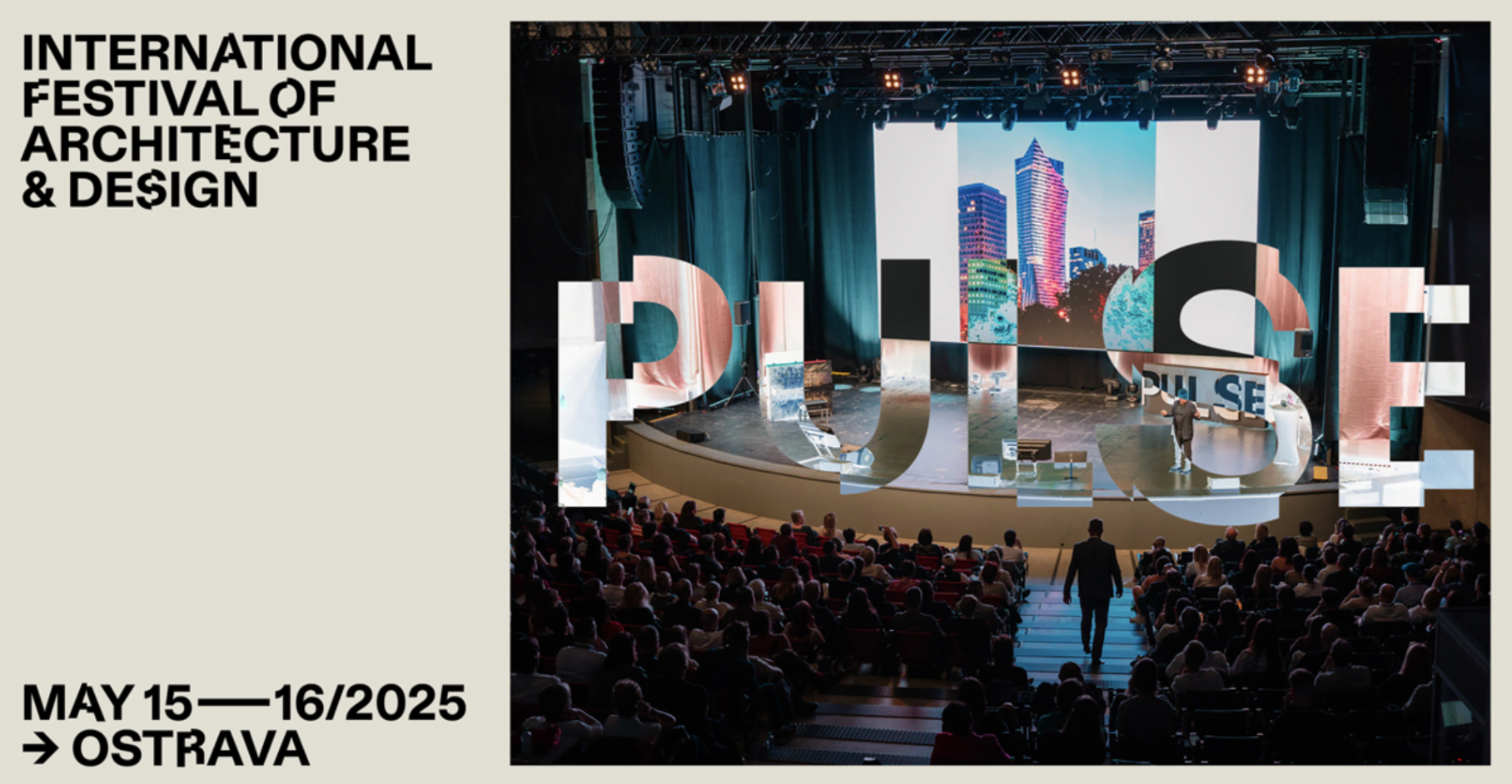
Day 1 – May 15: From Product Design to Architecture
This day will follow the journey from small-scale design to full architectural vision. Topics include circular design, material innovation, and sustainability in everyday living.
Confirmed speakers include Patrick Norguet (FR), Eva Jiřičná (CZ), Pavol Paňák (SK), Oskar Zięta (PL), Marco Dessi (AT), Kickie Chudikova (SK), Michael Vasku (AT/CZ), Lenka Míková (CZ), Stephan Vary (AT), and Bálazs Falvai (HU).
Day 2 – May 16: Architecture & Urbanism
From adaptive reuse to regenerative cities, this day will tackle how architecture can make our cities more resilient, inclusive, and ready for the future. Urban planners and civic leaders will discuss transforming public space amid climate and social change.
Key speakers include Winy Maas (NL), Matúš Vallo (SK), JEMS Architekci (PL), Kryštof Chybík (CZ), Querkraft Architekten (AT), ZeroZero (SK), Tomazs Konior (PL), Lépték architects (HU), LAAB Architects (HK), David Basulto (CL), and Ivan Blasi (ES).
New This Year: The Forbes Stage
A new addition to the festival, the FORBES Stage will host live interviews and panels moderated by Forbes editors from Central Europe. This second stage is designed to offer a more informal, engaging experience for participants who want to go deeper into key topics.
Tickets and program details are available at www.pulse.archi/ostrava
Would you like us to write about your business? Find out more
Czech President Petr Pavel used an address on VE Day to remember all soldiers who died in the Second World War, including Soviet troops, but insisted that Russia’s history does not excuse its modern-day aggression, comparing its recent behavior to Nazi Germany.
Ahead of a commemorative concert marking the 80th anniversary of the end of the Second World War, Czech President Petr Pavel warned that modern-day Russia is displaying behavior reminiscent of Nazi Germany and called on citizens to vote for parties committed to national and democratic security.
“Unfortunately, today’s Russia behaves in some respects as Nazi Germany once did,” Pavel said on Thursday.
“It does not respect international law, it respects the right of the strongest, it has invaded a sovereign country and has been waging an aggressive war for more than three years,” referencing Russia’s invasion of Ukraine.
Pavel also paid tribute to those who fought against fascism and imperial aggression during the Second World War, including Soviet soldiers, but emphasized that honoring their sacrifice does not extend to defending the present-day Russian regime. “It does not mean respect for today’s Russia at all,” he said.
In a message posted to social media earlier in the day, Pavel reflected on the historical significance of Victory in Europe Day, noting that “World War II marked the lives of millions of people and showed how far hatred and division in society can lead.” He warned of the tendency to forget history’s lessons, urging Czechs to remember those who “fought against oppression and injustice, and who often paid the ultimate price for our freedom.”
Pavel praised Czechia’s unwavering condemnation of Russian aggression since the invasion of Ukraine began, framing it as a moral and strategic obligation rooted in the lessons of the 20th century. “Authoritarians and aggressors must not be appeased,” he said. “We must look at today through this lens.”
As reported by Echo24, the president also warned about domestic threats to democracy, citing rising authoritarian tendencies within Czechia. He criticized efforts to rewrite or distort history, noting that even on Thursday in Prague, rallies were held where “history was distorted.” He was referring to demonstrations by the right-wing SPD and its allies in the Old Town Square in protest at increased defense spending.
Tomio Okamura’s party, which is more aligned with the official Hungarian and Slovak position on the war in Ukraine, called for immediate peace through a deal between Russia and the United States.
At a separate event, anti-government activist Ladislav Vrabel accused Czechia’s establishment politicians and media outlets of inciting anti-Russian sentiment and preparing the country for war.
Pavel concluded his address with a call for civic vigilance. “If we go to the polls this autumn, we need to vote wisely, to vote for politicians and parties that will be serious about security in our country,” he said.
Would you like us to write about your business? Find out more
Defending champion Czech Republic prevailed in overtime to open the men’s ice hockey world championship with a 5-4 victory over Switzerland on Friday in a rematch of last year’s final.
Czechia began their title defense at the 2025 Ice Hockey World Championship with a dramatic 5–4 overtime win against Switzerland. The game, played in Stockholm as part of the Sweden-Denmark co-hosted tournament, was a rollercoaster of goals, missed chances, and special teams play.
Switzerland struck early, with Christian Marti opening the scoring just two minutes into the game. Later in the first period, David Pastrňák had a chance to level the score from a penalty shot but failed to convert. The miss proved costly when Damien Riat doubled the Swiss lead just 32 seconds later.
Czechia responded at the very end of the opening period. With a 5-on-3 power play opportunity, Matěj Stránský found the back of the net just 19 seconds before the buzzer, narrowing the deficit to 2–1.
The second period belonged to Radim Rulík’s squad. In the 27th minute, Filip Zadina tied the game with a confident finish. Just nine minutes later, Filip Pyrochta gave Czechia the lead with a sharp shot from the slot.
To byla jízda na úvod šampionátu, co říkáte?
Navařili
jsme pětku gólových radostí a švýcarského hada setli v prodoužení!
4:5p#SUICZE #MensWorlds #narodnitym #ceskyhokej pic.twitter.com/RBGJer6n64
— Český hokej (@czehockey) May 9, 2025
But Switzerland fought back in the third. Sandro Schmid scored a power play goal in the 42nd minute, and Sven Andrighetto added another at even strength in the 49th to make it 4–3 for the Swiss.
As the clock ticked down, Czechia pushed hard and finally capitalized on a late power play. With less than four minutes to go, Lukáš Sedlák tied the game at 4–4, forcing overtime.
The decisive moment came in extra time. Team captain Roman Červenka, who had already assisted twice during the game, delivered the winning goal, clinching a vital extra point in Group B standings.
Czechia’s next challenge comes on Sunday at 20:20, when they face Norway.
Would you like us to write about your business? Find out more
The Prague International Rum Festival returns for its 13th year on Saturday, May 24, 2025, from 12:00 to 21:00 at Vnitroblock in Holešovice.
The event will showcase hundreds of rums from around the world, offering a mix of renowned brands and new releases. Throughout the day, top bartenders will be serving rum cocktails, while the program includes a variety of seminars and workshops suitable for both beginners and rum enthusiasts.
A major highlight of the day will be three exclusive masterclasses, held in collaboration with Barlife magazine and Vít Šafář from Hedonism Spirit. Each masterclass lasts one hour and requires a separate ticket, offering a deeper look into rare rums and professional tasting techniques.
The first masterclass begins at 14:00, featuring a tasting of five cask-strength rums curated by the Belgian company The Nectar, known for its premium whiskies and growing reputation in the rum world. The session is priced at 1,890 CZK, which includes general admission. Participants are asked to arrive by 13:45 in front of Polepšovna Bistro.
At 16:30, the second session will explore four rums by the German brand Wu Dram Clan, recognised for its high-quality spirits. This masterclass is priced at 1,990 CZK, including general admission, and participants should arrive at 16:15 at the same meeting point.

The final session, starting at 19:00, will focus on food pairings, matching premium rums with dishes like jerk pork tacos, shrimp with mango, and flambéed pineapple. Priced at 1,490 CZK, this class is limited to 16 participants, who are expected at 18:45 in front of Polepšovna Bistro.
Guests can enjoy Latin American-inspired food, live Latin music, and professional dance performances. In addition, the festival will feature handmade Colombian jewelry and accessories, along with elegant Stetson straw hats.
Standard admission is available for 390 to 490 CZK, including a free tasting glass. Tickets can be purchased through the GoOut platform. Entry is restricted to visitors aged 18 and over. Minors may enter only if accompanied by an adult.

Would you like us to write about your business? Find out more
A new chapter in Czech sports infrastructure is unfolding in the heart of Jihlava, where a multipurpose arena is nearing completion.
Designed by Chybik + Kristof Architects & Urban Designers, the Horácká Multifunctional Arena is set to become one of the most versatile sports and leisure centers in the country.
Construction began in the autumn of 2023 and will be completed later this year.
With a capacity of 5,650 spectators, the arena is more than just a hockey stadium.
“Located in the heart of Jihlava, this arena reflects a deliberate and forward-thinking decision by the city (Jihlava),” say architects Ondrej Chybik and Michal Kristof. It represents a bold reinvention of urban sports spaces–designed to blend into the city rather than stand apart from it.
At its core, the new complex honors Jihlava’s passion for hockey. As it will be the future home for HC Dukla Jihlava, the city’s legendary club and 12-time Extraliga champions. Since its founding in 1956, Dukla has shaped Czech hockey history and cultivated generations of elite players.
Yet, its vision goes well beyond ice. The arena includes an adaptable ice rink that can host everything from high-level sporting competitions to concerts and exhibitions, as well as an indoor gym and a rooftop running track offering city views.
Chybik + Kristof’s vision prioritizes public engagement, flexibility, and long-term community benefit.
During the planning phase, local children were invited to reimagine and draw the arena through their eyes–a creative initiative to indicate whether the architecture resonates even with society’s youngest members.
The results: a space as iconic and recognizable as it is functional.






